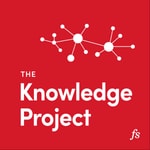Conversations with Tyler – Details, episodes & analysis
Podcast details
Technical and general information from the podcast's RSS feed.

Conversations with Tyler
Mercatus Center at George Mason University
Frequency: 1 episode/15d. Total Eps: 260

Recent rankings
Latest chart positions across Apple Podcasts and Spotify rankings.
Apple Podcasts
🇨🇦 Canada - education
28/07/2025#56🇬🇧 Great Britain - education
28/07/2025#64🇺🇸 USA - education
28/07/2025#79🇨🇦 Canada - education
27/07/2025#92🇬🇧 Great Britain - education
27/07/2025#67🇺🇸 USA - education
27/07/2025#75🇬🇧 Great Britain - education
26/07/2025#83🇺🇸 USA - education
26/07/2025#81🇨🇦 Canada - education
25/07/2025#91🇬🇧 Great Britain - education
25/07/2025#66
Spotify
🇺🇸 USA - education
03/07/2025#50↘🇺🇸 USA - education
02/07/2025#47↘🇺🇸 USA - education
01/07/2025#45↘🇺🇸 USA - education
30/06/2025#42→🇺🇸 USA - education
29/06/2025#42↘🇺🇸 USA - education
28/06/2025#38↘🇺🇸 USA - education
27/06/2025#38↘🇺🇸 USA - education
26/06/2025#37→🇺🇸 USA - education
25/06/2025#37↗🇺🇸 USA - education
24/06/2025#41↗
Shared links between episodes and podcasts
Links found in episode descriptions and other podcasts that share them.
See all- https://twitter.com/tylercowen
279 shares
- https://twitter.com/cowenconvos
260 shares
- https://twitter.com/jordanbpeterson
149 shares
- https://www.mercatus.org/podcasts
350 shares
- https://marginalrevolution.com/
64 shares
RSS feed quality and score
Technical evaluation of the podcast's RSS feed quality and structure.
See allScore global : 63%
Publication history
Monthly episode publishing history over the past years.
Nate Silver on Risk-takers, Politicians, and Poker Players
Episode 219
mercredi 21 août 2024 • Duration 59:45
In his second appearance, Nate Silver joins the show to cover the intersections of predictions, politics, and poker with Tyler. They tackle how coin flips solve status quo bias, gambling’s origins in divination, what kinds of betting Nate would ban, why he’s been limited on several of the New York sports betting sites, how game theory changed poker tournaments, whether poker players make for good employees, running and leaving FiveThirtyEight, why funky batting stances have disappeared, AI’s impact on sports analytics, the most underrated NBA statistic, Sam Bankman-Fried’s place in “the River,” the trait effective altruists need to develop, the stupidest risks Tyler and Nate would take, prediction markets, how many monumental political decisions have been done under the influence of drugs, and more.
Read a full transcript enhanced with helpful links, or watch the full video.
Recorded July 22nd, 2024.
Other ways to connect
- Follow us on X and Instagram
- Follow Tyler on X
- Follow Nate on X
- Sign up for our newsletter
- Join our Discord
- Email us: [email protected]
- Learn more about Conversations with Tyler and other Mercatus Center podcasts here.
Paul Bloom on the Psychology of Children, and the Morality of Empathy and Disgust
Episode 218
mercredi 7 août 2024 • Duration 59:13
Paul Bloom is a renowned psychologist and writer specializing in moral psychology, particularly how moral thoughts and actions develop in children. But his interests and books explore a wide range of topics, including the science of pleasure, the morality of empathy, dehumanization, immoral vs moral punishments, and our feelings about animals and robots. Bloom is a professor at the University of Toronto and previously taught at Yale for over 20 years.
Together Paul and Tyler explore whether psychologists understand day-to-day human behavior any better than normal folk, how babies can tell if you’re a jerk, at what age children have the capacity to believe in God, why the trend in religion is toward monotheism, the morality of getting paid to strangle cats, whether disgust should be built into LLMs, the possibilities of AI therapists, the best test for a theory of mind, why people overestimate Paul’s (and Tyler’s) intelligence, why flattery is undersupplied, why we should train flattery and tax empathy, Carl Jung, Big Five personality theory, Principles of Psychology by William James, the social psychology of the Hebrew Bible, his most successful unusual work habit, what he’ll work on next, and more.
Read a full transcript enhanced with helpful links, or watch the full video.
Recorded May 13th, 2024.
Other ways to connect
- Follow us on X and Instagram
- Follow Tyler on X
- Follow Paul on X
- Sign up for our newsletter
- Join our Discord
- Email us: [email protected]
- Learn more about Conversations with Tyler and other Mercatus Center podcasts here.
Jonathan Haidt on Adjusting to Smartphones and Social Media
Episode 209
mercredi 3 avril 2024 • Duration 59:56
In The Anxious Generation, Jonathan Haidt explores the simultaneous rise in teen mental illness across various countries, attributing it to a seismic shift from a "play-based childhood" to a "phone-based childhood" around the early 2010s. He argues that the negative effects of this "great rewiring of childhood" will continue to worsen without the adoption of several norms and a more hands-on approach to regulating social media platforms.
But might technological advances and good old human resilience allow kids to adapt more easily than he thinks?
Jonathan joined Tyler to discuss this question and more, including whether left-wingers or right-wingers make for better parents, the wisest person Jonathan has interacted with, psychological traits as a source of identitarianism, whether AI will solve the screen time problem, why school closures didn't seem to affect the well-being of young people, whether the mood shift since 2012 is not just about social media use, the benefits of the broader internet vs. social media, the four norms to solve the biggest collective action problems with smartphone use, the feasibility of age-gating social media, and more.
Read a full transcript enhanced with helpful links, or watch the full video.
Recorded February 14th, 2024.
Other ways to connect
- Follow us on X and Instagram
- Follow Tyler on X
- Follow Jonathan on X
- Sign up for our newsletter
- Join our Discord
- Email us: [email protected]
- Learn more about Conversations with Tyler and other Mercatus Center podcasts here.
Photo Credits: Jayne Riew
Shadi Bartsch on the Classics and China
Episode 120
mercredi 21 avril 2021 • Duration 01:00:27
A self-professed nerd, the young Shadi Bartsch could be found awake late at night, reading Latin under the covers of her bed by flashlight. Now a professor of Classics at the University of Chicago, Dr. Bartsch is one of the best-known classicists in America and recently published her own translation of Virgil’s Aeneid. Widely regarded for her writing on Seneca, Lucan, and Persius, her next book focuses on Chinese interpretations of classic literature and their influence on political thought in China.
Shadi joined Tyler to discuss reading the classics as someone who is half-Persian, the difference between Homer and Virgil’s underworlds, the reasons so many women are redefining Virgil’s Aeneid, the best way to learn Latin, why you must be in a room with a native speaker to learn Mandarin, the question of Seneca’s hypocrisy, what it means to “wave the wand of Hermes”, why Lucan begins his epic The Civil War with “fake news”, the line from Henry Purcell’s aria that moves her to tears, her biggest takeaway from being the daughter of an accomplished UN economist, the ancient text she’s most hopeful that new technology will help us discover, the appeal of Strauss to some contemporary Chinese intellectuals, the reasons some consider the history of Athens a better allegory for America than that of Rome, the Thucydides Trap, the magical “presentness” of ancient history she’s found in Italy and Jerusalem, her forthcoming book Plato Goes to China, and more.
Read a full transcript enhanced with helpful links, or watch the full video.
Recorded March 16th, 2022
Other ways to connect
- Follow us on Twitter and Instagram
- Follow Tyler on Twitter
- Follow Shadi on Twitter
- Email us: [email protected]
- Subscribe at our newsletter page to have the latest Conversations with Tyler news sent straight to your inbox.
Dana Gioia on Becoming an Information Billionaire
Episode 119
mercredi 7 avril 2021 • Duration 01:18:29
Before he was California Poet Laureate or leading the National Endowment for the Arts, Dana Gioia marketed Jell-O. Possessing both a Stanford MBA and a Harvard MA, he combined his creativity and facility with numbers to climb the corporate ladder at General Foods to the second highest rung before abruptly quitting to become a poet and writer. That unique professional experience and a lifelong “hunger for beauty” have made him into what Tyler calls an “information billionaire,” or someone who can answer all of Tyler’s questions. In his new memoir, Dana describes the six people who sent him on this unlikely journey.
In this conversation, Dana and Tyler discuss his latest book and more, including how he transformed several businesses as a corporate executive, why going to business school made him a better poet, the only two obscene topics left in American poetry, why narrative is necessary for coping with life’s hardships, how Virgil influenced Catholic traditions, what Augustus understood about the cultural power of art, the reasons most libretti are so bad, the optimism of the Beach Boys, the best art museum you’ve never heard of, the Jungianism of Star Trek, his favorite Tolstoy work, depictions of Catholicism in American pop culture, what he finds fascinating about Houellebecq, why we stopped building cathedrals, how he was able to effectively lead the National Endowment for the Arts, the aesthetic differences between him and his brother Ted, his advice for young people who want to cultivate their minds, and what he wants to learn next.
Read a full transcript enhanced with helpful links, or watch the full video.
Recorded February 18th, 2021
Other ways to connect
- Follow us on Twitter and Instagram
- Follow Tyler on Twitter
- Follow Dana on Twitter
- Email us: [email protected]
- Subscribe at our newsletter page to have the latest Conversations with Tyler news sent straight to your inbox.
Sarah Parcak on Archaeology from Space
Episode 118
mercredi 24 mars 2021 • Duration 01:04:12
What can new technology tell us about our ancient past? Archaeologist and remote sensing expert Sarah Parcak has used satellite imagery to discover over a dozen potential pyramids and thousands of tombs from ancient Egypt. A professor of anthropology and founding director of the Laboratory for Global Observation at the University of Alabama at Birmingham, Sarah’s work combines technology, historical study, and cultural anthropology to advance discoveries about the past while navigating the political and ethical dilemmas that plague excavation work today.
She joined Tyler to discuss what caused the Bronze Age Collapse, how well we understand the level of ancient technologies, what archaeologists may learn from the discovery of more than a hundred coffins at the site of Saqqara, how far the Vikings really traveled, why conservation should be as much of a priority as excavation, the economics of looting networks, the inherently political nature of archaeology, Indiana Jones versus The Dig, her favorite contemporary bluegrass artists, the best archaeological sites to visit around the world, the merits of tools like Google Earth and Lidar, the long list of skills needed to be a modern archaeologist, which countries produce the best amateur space archaeologists, and more.
Read a full transcript enhanced with helpful links, or watch the full video.
Recorded February 25th, 2021
Other ways to connect
- Follow us on Twitter and Instagram
- Follow Tyler on Twitter
- Follow Sarah on Twitter
- Email us: [email protected]
- Subscribe at our newsletter page to have the latest Conversations with Tyler news sent straight to your inbox.
John Cochrane on Economic Puzzles and Habits of Mind
Episode 117
mercredi 10 mars 2021 • Duration 58:32
What unites John Cochrane the finance economist and “grumpy” policy blogger with John Cochrane the accomplished glider pilot? For John, the answer is that each derives from the same habit of mind which seeks to reduce things down to a few fundamental principles and a simple logical structure. And thus, piloting a glider can be understood as an application of optimal portfolio theory, and all of monetary policy can be made to fit within the structure of a single equation.
John joined Tyler to apply that habit of mind to a number of puzzles, including why real interest rates don’t equalize across countries, what explains why high trading volumes and active management persist in finance, how the pandemic has affected his opinion of habit formation theories, his fiscal theory of price level and inflation, the danger of a US sovereign debt crisis, why he thinks Bitcoin will eventually die, his idea for health-status insurance, becoming a national gliding champion, how a Renaissance historian for a father and a book translator for a mother shaped him intellectually, what’s causing the leftward drift in economics, the need to increase competition among universities, how he became libertarian, the benefits of blogging, and more.
Read a full transcript enhanced with helpful links, or watch the full video.
Recorded January 4th, 2021
Other ways to connect
- Follow us on Twitter and Instagram
- Follow Tyler on Twitter
- Follow John on Twitter
- Email us: [email protected]
- Subscribe at our newsletter page to have the latest Conversations with Tyler news sent straight to your inbox.
Patricia Fara on Newton, Scientific Progress, and the Benefits of Unhistoric Acts
Episode 116
mercredi 24 février 2021 • Duration 57:58
Patricia Fara is a historian of science at Cambridge University and well-known for her writings on women in science. Her forthcoming book, Life After Gravity: Isaac Newton's London Career, details the life of the titan of the so-called Scientific Revolution after his famous (though perhaps mythological) discovery under the apple tree. Her work emphasizes science as a long, continuous process composed of incremental contributions–in which women throughout history have taken a crucial part–rather than the sole province of a few monolithic innovators.
Patricia joined Tyler to discuss why Newton left Cambridge to run The Royal Mint, why he was so productive during the Great Plague, why the “Scientific Revolution” should instead be understood as a gradual process, what the Antikythera device tells us about science in the ancient world, the influence of Erasmus Darwin on his grandson, why more people should know Dorothy Hodgkin, how George Eliot inspired her to commit unhistoric acts, why she opposes any kind of sex-segregated schooling, her early experience in a startup, what modern students of science can learn from studying Renaissance art, the reasons she considers Madame Lavoisier to be the greatest female science illustrator, the unusual work habit brought to her attention by house guests, the book of caricatures she’d like to write next, and more.
Read a full transcript enhanced with helpful links, or watch the full video.
Recorded January 15th, 2021
Other ways to connect
- Follow us on Twitter and Instagram
- Follow Tyler on Twitter
- Email us: [email protected]
- Subscribe at our newsletter page to have the latest Conversations with Tyler news sent straight to your inbox.
Brian Armstrong on the Crypto Economy
Episode 115
mercredi 10 février 2021 • Duration 54:55
Brian Armstrong first recognized the potential of cryptocurrencies after witnessing firsthand the tragic consequences of hyperinflation in Argentina. Coinbase, the company he co-founded, aims to provide the primary financial accounts for the crypto economy. Their success in accomplishing this, he says, is due as much to their innovative approach to regulation as it is anything technological.
Brian joined Tyler to discuss how he prevents Coinbase from being run by its lawyers, the value of having a mission statement, what a world with many more crypto billionaires would look like, why the volatility of cryptocurrencies like Bitcoin is more feature than bug, the potential for scalability in Ethereum 2.0, his best guess on the real identity of Satoshi, the biggest obstacle facing new charter cities, the meta rules he’d institute for new Martian colony, the importance of bridging the gap between academics and entrepreneurs, the future of crypto regulation, the benefits of stablecoin for the unbanked, his strongest and weakest interpersonal skill, what he hopes to learn from composing electronic music, and more.
Read a full transcript enhanced with helpful links, or watch the full video.
Recorded January 14th, 2022
Other ways to connect
- Follow us on Twitter and Instagram
- Follow Tyler on Twitter
- Follow Brian on Twitter
- Email us: [email protected]
- Subscribe at our newsletter page to have the latest Conversations with Tyler news sent straight to your inbox.
Benjamin Friedman on the Origins of Economic Belief
Episode 114
mercredi 27 janvier 2021 • Duration 01:07:15
Benjamin Friedman has been a leading macroeconomist since the 1970s, whose accomplishments include writing 150 papers, producing more than dozen books, and teaching Tyler Cowen graduate macroeconomics at Harvard in 1985. In his latest book, Religion and the Rise of Capitalism, Ben argues that contrary to the popular belief that Western economic ideas are a secular product of the Enlightenment, instead they are the result of hotly debated theological questions within the English-speaking Protestant world of thinkers like Adam Smith and David Hume.
Ben joined Tyler to discuss the connection between religious belief and support for markets, what drives varying cultural commitments to capitalism, why the rate of growth is key to sustaining liberal values, why Paul Volcker is underrated, how coming from Kentucky influences his thinking, why annuities don’t work better, America’s debt and fiscal sustainability, his critiques of nominal GDP targeting, why he wouldn’t change the governance of the Fed, how he maintains his motivation to keep learning, his next big project on artificial intelligence, and more.
Read a full transcript enhanced with helpful links, or watch the full video.
Recorded December 4th, 2020
Other ways to connect
- Follow us on Twitter and Instagram
- Follow Tyler on Twitter
- Email us: [email protected]
- Subscribe at our newsletter page to have the latest Conversations with Tyler news sent straight to your inbox.









